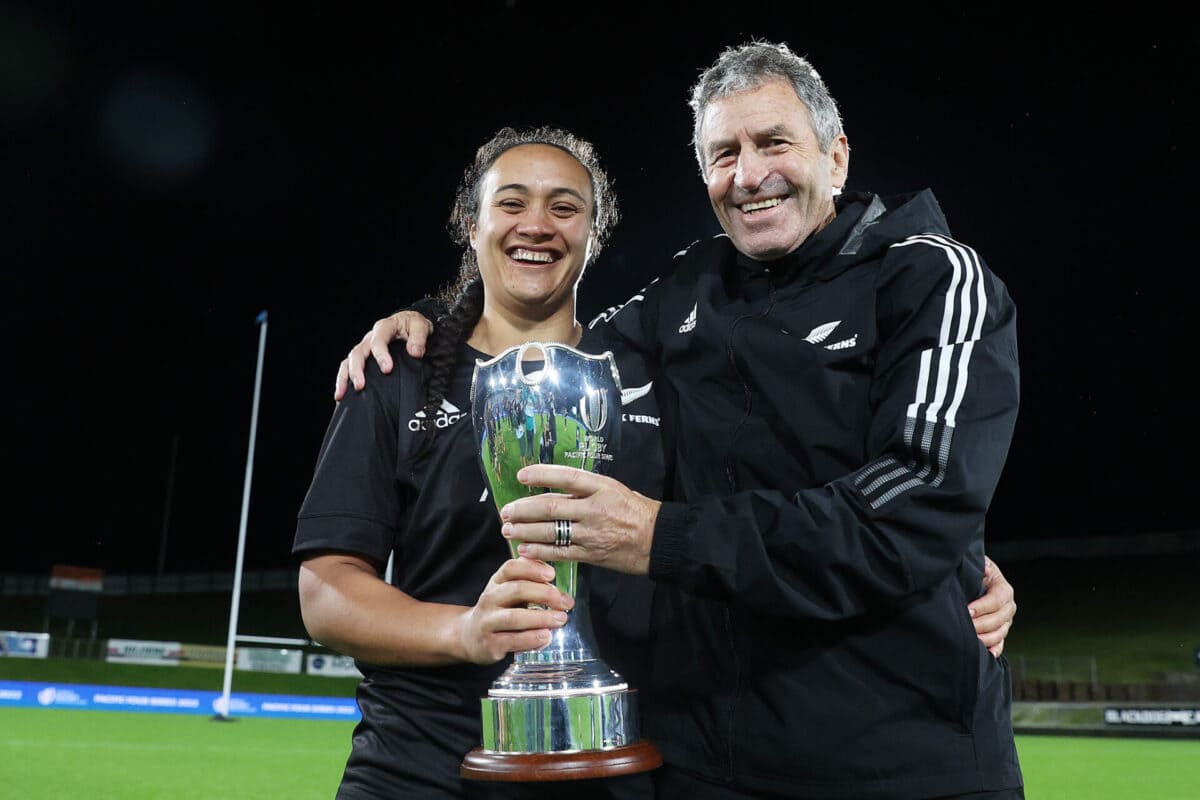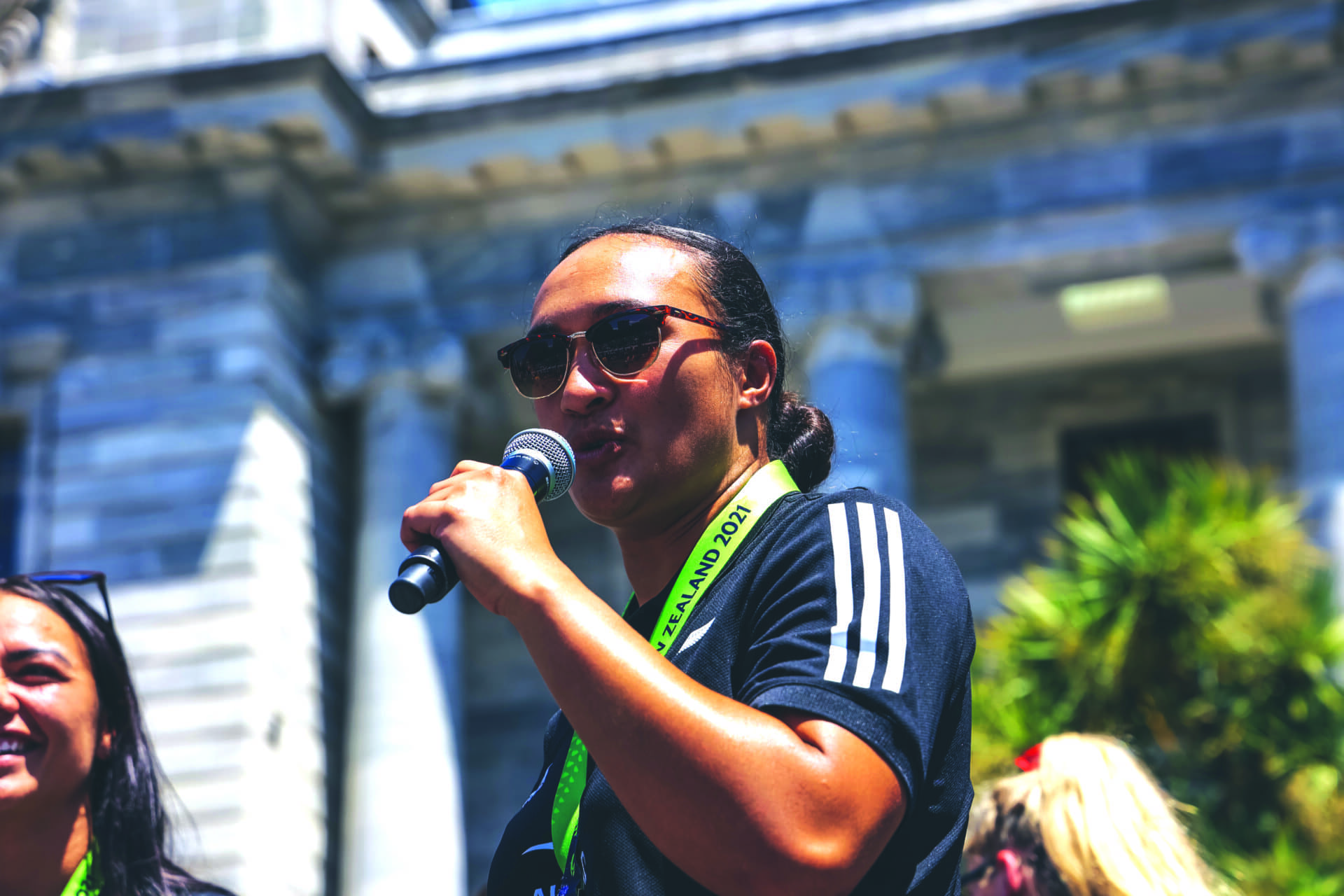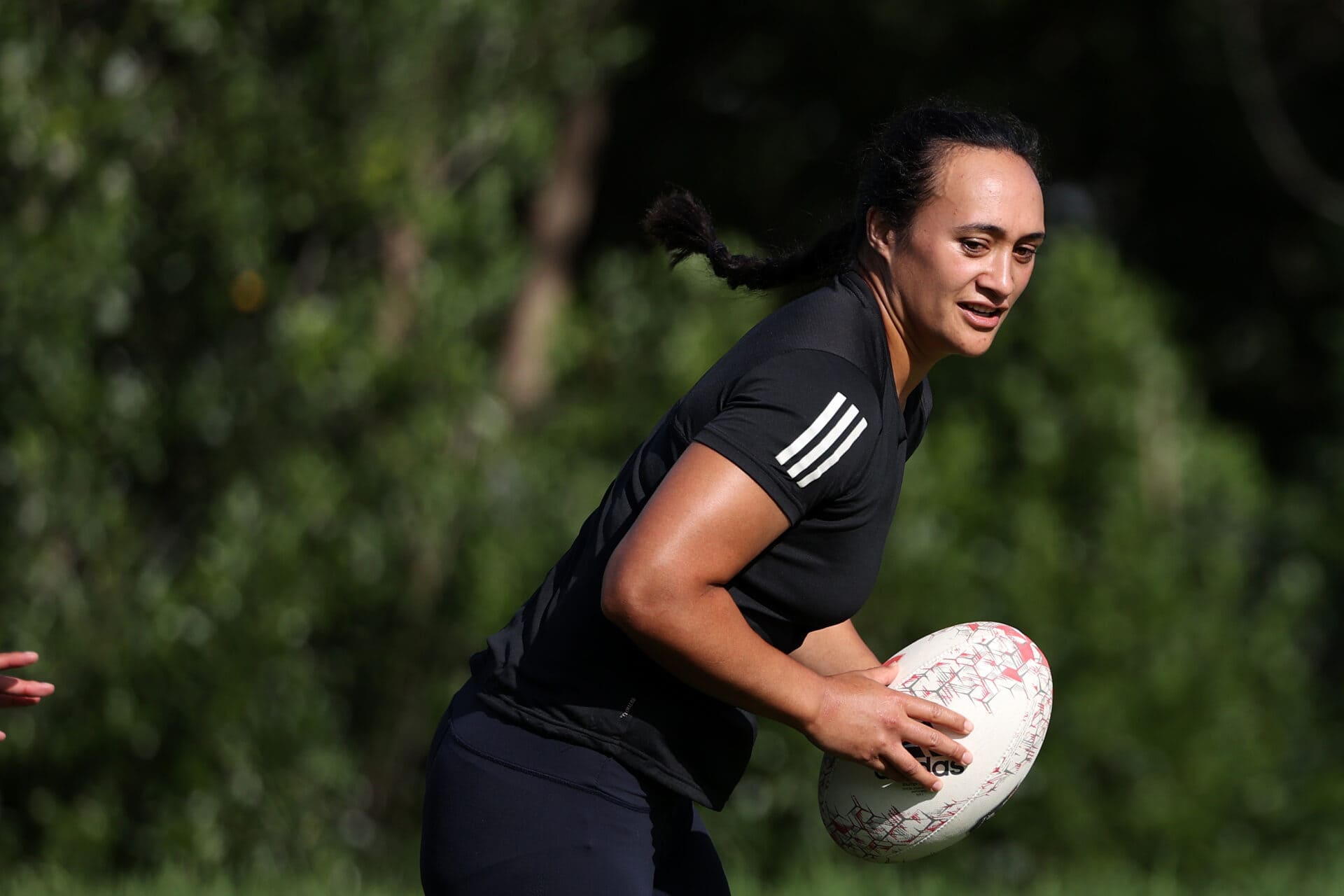Ruahei Demant – From small-town upbringing to rugby world champ

- Written by
- Abby Beswick
Taking on the world of rugby is about as far as you can get from Ruahei Demant’s small town upbringing in an immersive Māori community. Neither she nor her family would have predicted the young girl from Ōmāio in the Bay of Plenty would grow up to co-captain the New Zealand Black Ferns. Yet, it was this childhood that shaped her identity, and gave her the confidence to chase her rugby dreams.
After the Black Ferns incredible World Cup victory last year that propelled them into the spotlight, Demant admits she still can’t quite believe it’s real. We managed to catch up with Demant straight out of a training session, to talk about what makes the team so special, her aspirations for women’s rugby, and why she loves the game.
What was your childhood like? “I’m from a really small, isolated place called Ōmāio in the eastern Bay of Plenty. I have five siblings and we were fortunate enough to be raised and immersed in a Māori community. Our first language was Māori and we grew up on the Marae, surrounded by immediate and extended whanau.
My father was a cray fisherman, so we lived on the coast and dad going to sea every day was a normal part of our life. When I was 12, dad sold his quota and we moved to Warkworth, which was a completely opposite community to what I was used to. My community growing up was 95% Māori and in Warkworth it was 95% Pakeha. That was the first time in my life that I realised being Māori was different. I didn’t realise there were Māori out there who weren’t like me and didn’t grow up speaking their language and didn’t know who they were and where they came from because for us it was normal.”
How did you get into rugby? “My first introduction to rugby was on the marae, playing rugby and bull rush with my cousins. The beautiful thing about moving to Warkworth was that it was so close to towns and cities like Auckland that my sister and I had a natural interest in sport and so we were closer to all these amazing opportunities. We pretty much played every sport that we could. When my older sister was at high school she came home one day and said she had signed up for the rugby team. So my sister and I had to go to rugby training with her and then we joined the first 15.”
Did you immediately feel a connection to the sport? “No! It wasn’t like it is now. When I started playing I was 13 and I was playing against 18-year-olds. It wasn’t a popular sport, so no one wanted to play it, and no one wanted to come and watch it. There weren’t many teams or competitions; after a year of playing, there weren’t enough teams to play so we changed from a 15 to a 10s competition. It wasn’t until 2012 when the Rugby Sevens were announced as an Olympic sport and girls were included, that it started to change.”
What do you love about the game? “It wasn’t until my sister and I started playing women’s rugby at College Rifles Rugby Club in Auckland at the end of high school that we really started to enjoy it because we were playing with players who were in the Black Ferns, we were coached by legends like Anna Richards and we were meeting all these people we’d never met before. That’s what inspired us – it wasn’t really about rugby it was more the people.
That’s definitely what got us hooked and that’s what keeps me here today – the friendships. Because of the physical nature of rugby, the fact that you have to put your body on the line to have your mate’s back forces you to trust people in a way that you otherwise wouldn’t in other sports. So the friendships that develop as a consequence of that are really special and transcend far beyond the rugby field.”
How did it feel to be named a Black Fern? “In 2018 I made the Black Ferns. I was obviously shocked because it was unexpected. My sister Kiritapu had previously made the team, which was a huge milestone for our whanau. We never got to play together but we were in the team together that season and I’ve been fortunate enough to be in the team ever since.”
Why does the team work so well together? “We’re really lucky that it’s a group of people who are on board with the values that have been established around developing trust and getting to know people beyond the field, which makes a huge difference when we’re on the field. So we feel very connected to what we are doing and I think that’s part of the reason why it feels very special.”
What’s been the impact of coaching icon Wayne Smith? “Smithy’s a very special person. Hand on heart, I know anyone who’s been coached by him would probably say that. He’s very innovative – he doesn’t do things the way anyone else does. He’s always finding a new way to evolve and create opportunities. He was really big on us playing a game that was reflective of the DNA of New Zealand and true to the fabric of our country.”
What did it feel like when you won the Rugby World Cup final? “I couldn’t believe that we had done what we said we were going to do. We had talked about defending the World Cup for years and for us to finally be in a World Cup and then make the final and then win and be world champions. It took so long for it to actually sink in.”
How did the crowd and supporters affect you? “As women we’re so used to driving to stadiums and there’s no one there and the seats are empty. We were driving to Eden Park for the World Cup Opener and we could see all the people walking to the stadium. We couldn’t believe that NZ and the world had shown up to support women. Being able to run out and hear the roar of a home crowd was so special. Every week 40,000 people were there to support us and we knew that was our strength.”
What are your aspirations for women’s rugby? “I really hope that myself and my team can be part of a turning point in women’s rugby in Aotearoa where we are able to become world dominant. That’s my dream. Because of the work that was done last season, we have such a great opportunity now to be able to take what we did and ride that wave even further – that’s what really excites me. I’m also conscious I’m in a privileged position as I get to be a role model for young girls and young Māori.”
What are your personal and professional goals? “I’m signed to play for the Blues and our season has just kicked off so that’s my current focus. I’ve also completed my law degree and the next step is to be admitted to the bar.”

